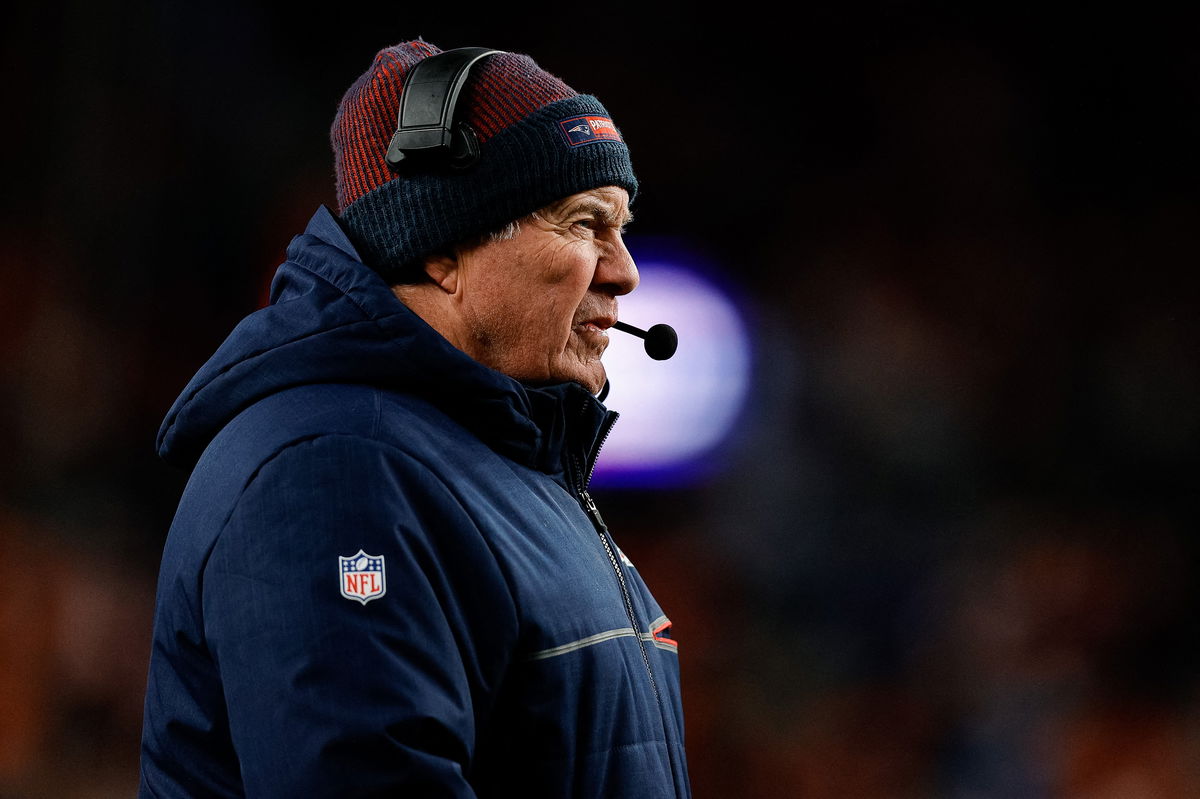
USA Today via Reuters
FILE PHOTO: Dec 24, 2023; Denver, Colorado, USA; New England Patriots head coach Bill Belichick in the second quarter against the Denver Broncos at Empower Field at Mile High./Isaiah J. Downing-USA TODAY Sports/File Photo

USA Today via Reuters
FILE PHOTO: Dec 24, 2023; Denver, Colorado, USA; New England Patriots head coach Bill Belichick in the second quarter against the Denver Broncos at Empower Field at Mile High./Isaiah J. Downing-USA TODAY Sports/File Photo
Bill Belichick is set to debut the University of North Carolina’s iconic 1980 throwback uniforms in his first season as head coach. These Carolina Blue jerseys, with their distinctive design from a time when the Tar Heels surged to an 11-1 record and claimed an ACC championship, are stirring deep nostalgia among longtime fans. The uniforms evoke a period when North Carolina football was a dominant force, fresh off a season that started with an impressive 7-0 streak and left a lasting mark on college football.
Watch What’s Trending Now!
Despite this reverence for the past, the present and future of Belichick’s first year at UNC remain shrouded in uncertainty. Analysts and experts agree that it’s hard to predict what Belichick’s college team will look like on the field. TCU’s head coach Sonny Dykes, preparing for the primetime season opener against UNC on Labor Day, said, “We don’t know exactly what their schemes will look like with new players and a new staff, which makes preparation tricky.” CBS Sports described the situation as one filled with “intrigue and skepticism” surrounding Belichick’s transition from NFL icon to college football head coach.
This uncertainty is not only among opponents and media analysts but also extends to those covering the team from the inside. ESPN broadcaster Rece Davis, tasked with calling the UNC-TCU game alongside Kirk Herbstreit, shared his perspective on the difficulties he encountered during UNC’s spring camp under Belichick. Davis remarked, “I have no idea what to make of North Carolina. I’m calling their first game against TCU, and they’ve got like 80 new players who went to practice in the spring. There were no numbers on the jerseys. So, I asked Bill about that.”
ADVERTISEMENT
The broadcaster is rightly concerned. With such turnover, how is anyone going to familiarize themselves with the players who’ll be on the field? Most of them may be taking the field for the first time at the Tar Heels. However, the head coach sees it differently.

ADVERTISEMENT
For Belichick, creating a culture of accountability and attention to detail begins with something as basic as the jersey numbers or the lack thereof. Transferring his exacting standards from the NFL to the college level, Belichick insisted that players must “earn it” at practice, even down to their individual jersey numbers. When Davis questioned Belichick about the absence of numbers, Belichick’s reply was simple and direct. He said, “Well, you got to learn your players.” This is a statement that Belichick’s focus is on knowing his team inside and out.
ADVERTISEMENT
Belichick’s methods are uncompromising. Every player on the roster must prove themselves in practice. Every detail matters, and there are clear consequences for failing to meet expectations. This program is being remade in his own image—no shortcuts, no assumptions, only results. Players have to earn everything, from their jersey numbers to playing time. Even the experts who cover the games are left searching for answers amid the mystery Belichick maintains around his team.
What this means for UNC football fans and college football observers alike is a season of anticipation wrapped in uncertainty. The Tar Heels’ iconic blue jerseys will evoke memories of past glory, but whether Belichick’s discipline and demanding style translate into immediate success remains to be seen.
ADVERTISEMENT
The no-jersey numbers strategy
Bill Belichick’s decision to have his UNC players practice without names or numbers on their jerseys caught many off guard, but it’s a tactic deeply rooted in his approach to team-building. Michael Lombardi, UNC’s new general manager and a longtime Belichick confidant, explained on The Pat McAfee Show that the move was about fostering communication.
Lombardi said, “There’s a method to everything Coach [Bill Belichick] does. One of the things we have to work on here at North Carolina is our communication, right? We got to know everybody on the team. We’ve got to be able to not just call out, ‘Hey, 79! You’ve got that gap. [Or] you’ve got to slide down.” By removing the easy identifiers, players are forced to develop sharper, more precise communication skills on the field.
Top Stories
John Harbaugh Fires Giants Coach Battling Cancer as Ravens Block Staff Poaching
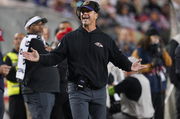
Bills Announce Concerning Josh Allen News as Owner Unloads on NFL Refs For Brandin Cooks Incident
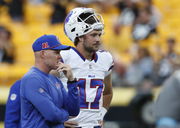
Josh Allen’s Strong Stance on Sean McDermott’s Exit Revealed After Owner Shared Bills QB’s Role in HC’s Firing
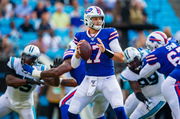
Viral 4-Year-Old NFL Picks Girl Faces Death Threats After Cardi B’s Profanity-Laced Rant

‘Desperate’ to Find Help, Cowboys Legend Troy Aikman Shares Medical Update on Chronic Issue
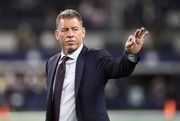
Former UFC Heavyweight Jailed in Florida After Confrontation With Neighbor: Report

Lombardi revealed this wasn’t a new experiment either. It’s a practice Belichick implemented during his time with the Patriots. “When we did it in New England, everybody felt like we didn’t want the media to know who the players were. Well, that wasn’t true at all. We wanted to work on communication, and that’s what we’re doing here.” The strategy helps push players beyond relying on superficial cues and strengthens their connections as teammates, something Belichick clearly prioritizes in molding his roster’s character and cohesion.
ADVERTISEMENT
Of course, this approach is not without its drawbacks. Lombardi acknowledged the biggest challenge: “It’s not easy for players, coaches, or media. Imagine trying to follow a hundred-man roster where everybody looks the same.” The lack of distinction can cause confusion and slow recognition, especially early on. But Belichick and his staff view this short-term discomfort as a necessary step toward building a disciplined, tight-knit team that functions seamlessly under pressure, which is exactly what he expects from his players on game day.
ADVERTISEMENT
ADVERTISEMENT
ADVERTISEMENT



